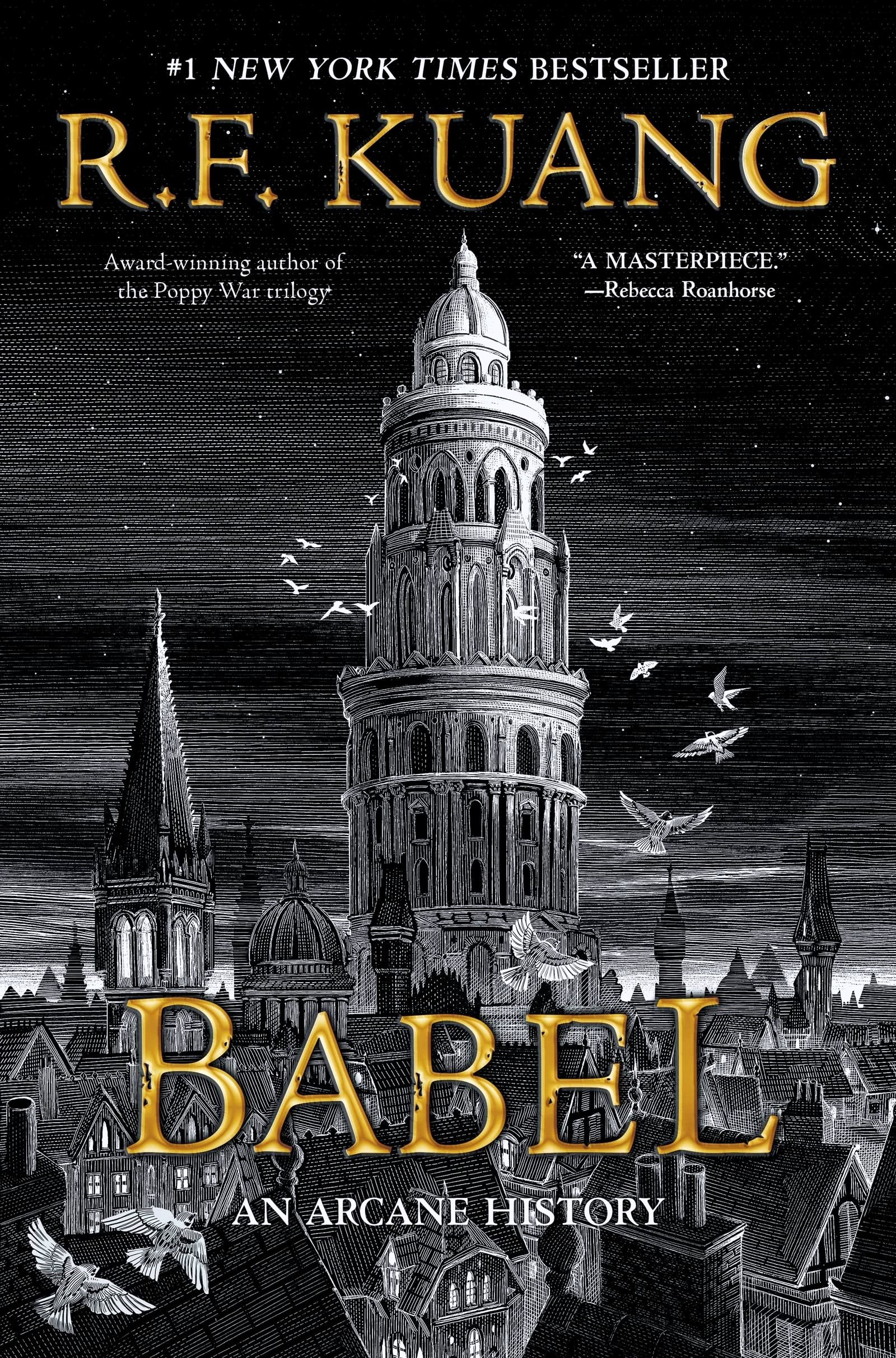Babel
by RF Kuang
Disclosure: This post contains affiliate links. If you choose to make a purchase through them, I may earn a small commission at no extra cost to you.
Babel is a dark academia adjacent novel. While the story on center stage takes place at Oxford, the themes explored and their implications go far beyond those of a typical dark academia novel. Babel interrogates the exploitative nature of colonialism with its mechanisms cleverly encased in a unique magic system of Silverworking.
I thoroughly enjoyed how Oxford was rendered in a way that is lived-in. I particularly enjoyed the discussion around language, etymology, the schools of thoughts around translation. I find myself thinking about translations and how much is gained or lost during the process. It touches on complex issues of cultural assimilation, the conflict between self-preservation and morality, the ethics of achieving freedom through violence, to name a few. The book was ambitious and well researched. But there were two main flaws I’d like to discuss.
One was that the character development was lacking. The book was written from the perspective of Robin, the main protagonist. In many ways his experience was representative of many from his cohort - the fear of the life left behind, the desire to belong, the hatred towards the colonial machine and his complete dependence on it, the confusion caused by wanting to be a part of a society that was prejudiced against his entire race. The other students seemed to be variations of the theme that was Robin Swift. I wished more viewpoints were discussed.
The second issue was the clean and sharp divide along racial and ethnic lines. It lacked nuance and complexity. The book spent many pages creating a world with many characters but in the end they neatly fell into the camps of white vs. non-white and British vs. foreigners. The almost perfect symmetry of the two cohorts, Robin’s and Griffin’s perhaps demonstrated the inevitability of the exploitations of colonialism. But making Sterling and Letty, the only two white, British subjects, the people to betray Hermes took the agency out of their actions. Similarly, the unity of all the other six foreign born students joining Hermes in its efforts to combat Britain’s exploitations deprived them of their individual choices. On the flip side we have Professors Lovell and Playfair representing the interest of the empire. They were almost cartoonishly villainous that it was difficult to take them seriously.
Overall it was a worthwhile read. I’m planning on reading the Poppy Wars trilogy also by RF Kuang to get a better sense of her range.
